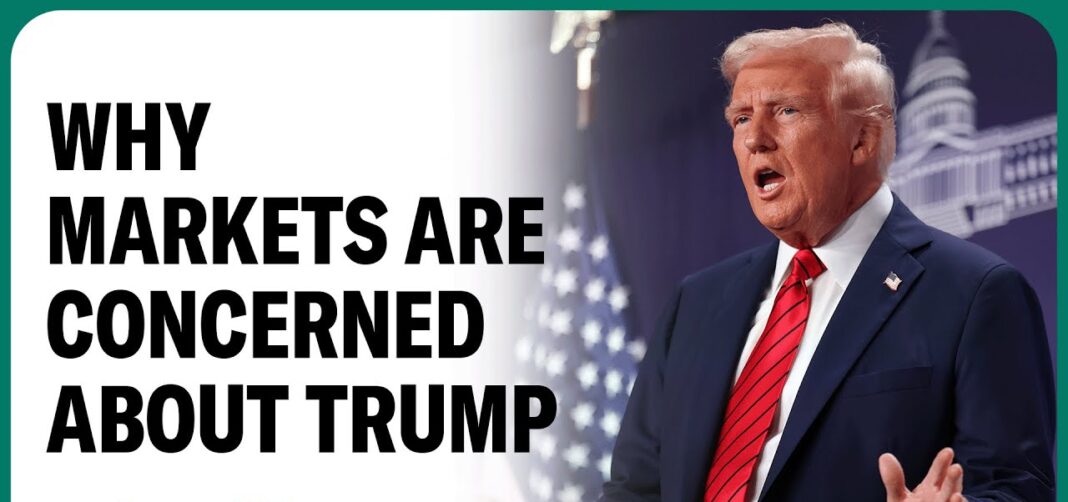Economic Shifts in Germany’s Trade and Investment Landscape
Germany, Europe’s largest economy, finds itself at a crucial juncture as new trade policies and tariffs from the United States threaten its economic stability. As a leading global trade hub, Germany’s economic model has long been centered around globalization and free trade. However, recent developments, including potential tariffs imposed by the U.S., are forcing policymakers and businesses to reconsider their strategies.
The Role of the Port of Hamburg
At the heart of Germany’s trade ecosystem is the Port of Hamburg, one of Europe’s largest and most significant trade hubs. This port has played a crucial role in Germany’s economic growth, handling a significant portion of goods traded with Asia, the U.S., and other global markets. Nearly one-third of all containers passing through Hamburg are linked to China, emphasizing the strong trade relationship between the two nations.
With recent trade conflicts escalating, businesses in Hamburg are preparing for a more uncertain future. While long-term planning remains a priority, immediate concerns center around infrastructure investment and increasing efficiency to sustain the port’s role in global trade.
The U.S.-China Trade War’s Impact on Germany
Germany’s economic dependence on trade makes it vulnerable to global conflicts, particularly the ongoing U.S.-China trade war. New tariffs on goods entering the U.S. have raised concerns among German businesses reliant on exports. While some industries may find opportunities in alternative markets, others risk significant losses if protectionist policies continue to rise.
One area of growing interest is India, which is emerging as a key trade partner. However, China remains Germany’s dominant trading partner, meaning any significant disruptions in U.S.-China relations could have long-term effects on German trade flows.
Infrastructure Investments and Future Trade Strategies
One of the key strategies Germany is adopting to remain competitive is heavy investment in infrastructure. Given Hamburg’s geographical constraints, efficiency and technological advancements are seen as essential for sustaining its role in global trade. Investments in hydrogen energy and other sustainable solutions also point to Germany’s commitment to future-proofing its trade capabilities.
The Political and Economic Landscape in Germany
The upcoming German elections add another layer of uncertainty to the economic landscape. While mainstream political parties advocate for globalization and free trade, rising nationalist movements present a challenge to these long-standing economic principles. The election outcome could significantly impact trade policies and Germany’s stance in international negotiations.
Additionally, bureaucratic hurdles and high energy prices have raised concerns among German businesses, highlighting the need for reforms to maintain competitiveness on the global stage. Many industry leaders are calling for a reduction in bureaucracy and clearer trade policies to ensure economic stability.
The Outlook for Global Trade and Germany’s Position
Looking ahead, Germany faces a complex trade environment. The country must navigate geopolitical tensions between the U.S. and China, while also finding ways to strengthen ties with emerging economies. Europe’s response to U.S. tariffs will play a significant role in shaping future trade agreements and policies.
Germany’s ability to adapt to these challenges will determine its economic trajectory in the coming years. Strengthening diplomatic efforts, diversifying trade partners, and investing in infrastructure will be key strategies to ensure continued growth and stability in the evolving global economic landscape.
Conclusion: Preparing for the Future
Germany’s trade sector is at a crossroads, facing challenges from new U.S. tariffs, global trade realignments, and domestic political shifts. To safeguard its economic future, Germany must focus on innovation, infrastructure, and policy reform. Businesses should prepare for evolving trade policies, while policymakers work towards fostering stronger global partnerships. The coming months will be crucial in determining how Germany positions itself in the changing international trade order.
Disclaimer:
This article is based on publicly available information and expert analysis. It does not constitute financial, trade, or investment advice. Readers should conduct their own research and consult with professional advisors before making economic decisions.
Alex Murphy is an investigative journalist who specializes in uncovering emerging business trends and technologies shaping the future.




